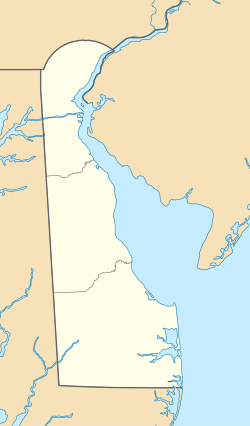Peter S. Faucett House | |
 | |
| Location | W. Laurel St., Georgetown, Delaware |
|---|---|
| Coordinates | 38°41′24″N75°23′18″W / 38.69000°N 75.38833°W |
| Area | 0.2 acres (0.081 ha) |
| Architectural style | Greek Revival, Gothic, Italianate |
| NRHP reference No. | 85002006 [1] |
| Added to NRHP | September 5, 1985 |
Peter S. Faucett House, also known as the Hitchens House, is a historic home located at Georgetown, Sussex County, Delaware. It is an early-19th century, two-story, six-bay, shingled frame dwelling in a vernacular style. It consists of two separate three-bay structures joined to form a single dwelling. It has a two-story rear ell, gable roof, and cross-gable dormer. It features a variety of Greek Revival, Italianate, and Gothic style design elements. Also on the property is a contributing frame garage, built between 1910 and 1930. [2]
The site was added to the National Register of Historic Places in 1985. [1]



